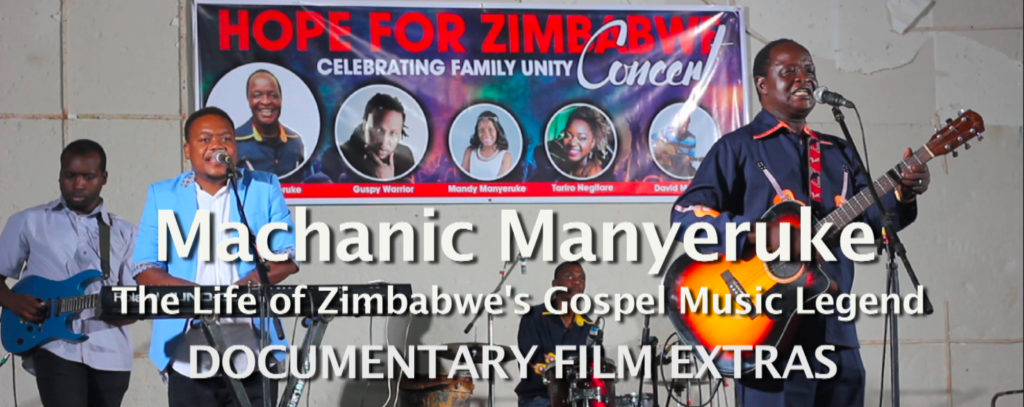
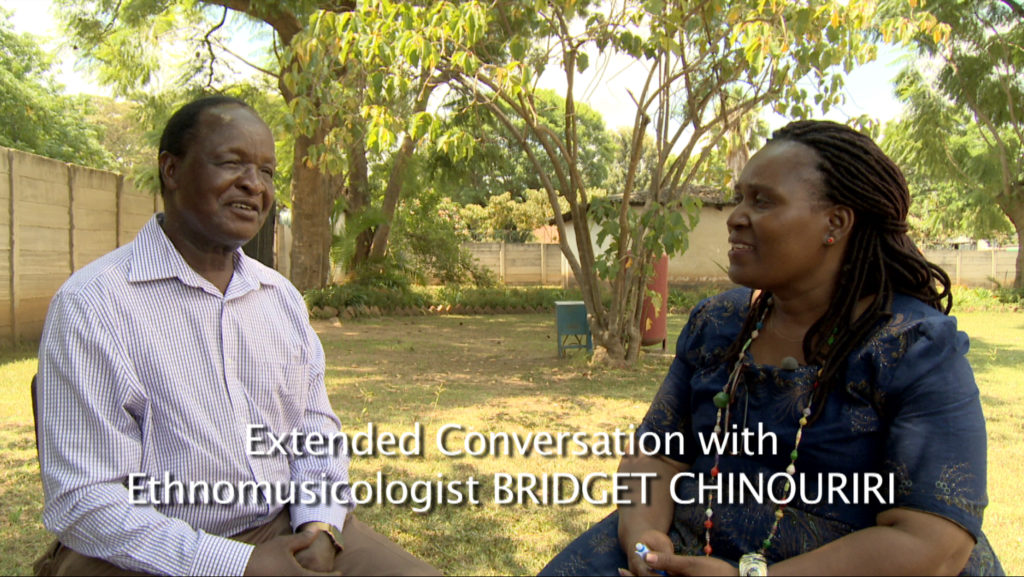
Extended interviews and conversations containing much more about Machanic Manyeruke’s life and music.
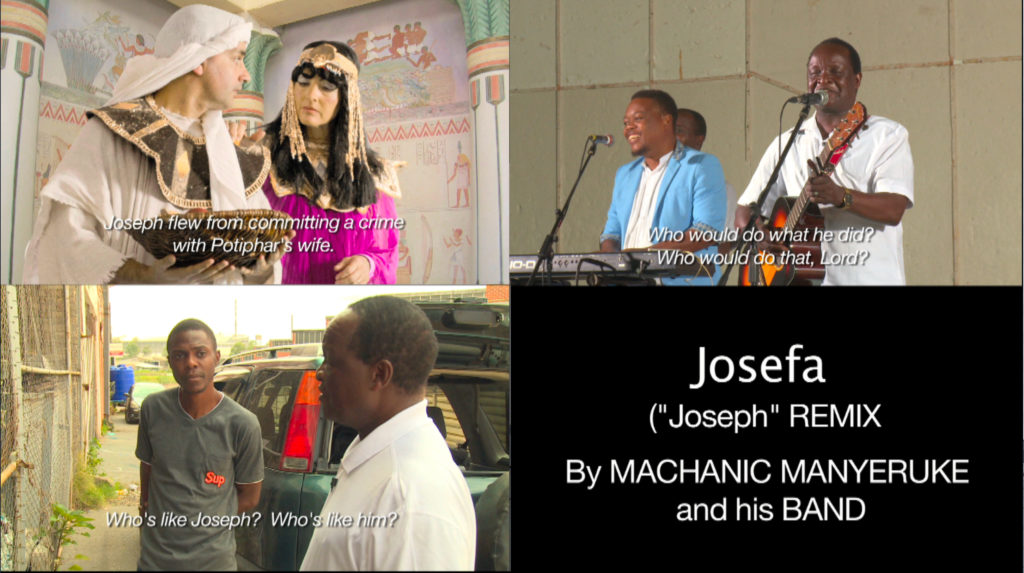
Music videos of songs subtitled in English for digital downloads.
Lessons Machanic Manyeruke’s Story Holds for Understanding Matters of Culture & Faith, Church History . . . and More
How Music Can Nourish Any Soul
(How this film came to be)
I first came to know and love Machanic Manyeruke’s music while doing research and then filming for an extensive documentary film project exploring the sources and directions of Christianity’s explosive growth in Africa filmed in Ghana and Zimbabwe. Doing preproduction research in Zimbabwe in 1996 I found myself traveling around the country to different locations listening to his and other local gospel musicians’ songs. Gospel music had become wildly popular by then, and his songs especially. Translator/guides driving with me would translate the lyrics of his songs (almost all in the local Shona language which I don’t know) and, in time, while driving alone, I found myself singing the choruses along with them. And, though in Shona, I felt them nourishing me spiritually, which seemed remarkable! Several years later, while doing major filming for the project in 2000 I continued to listen to his music, and would hear his songs being sung in a variety of local churches where we filmed, for example in St. James United Methodist Church here in Dangamvura township outside Mutare, where it was sung from memory by all as a normal part of prayer time in regular Sunday worship. (To watch click below)
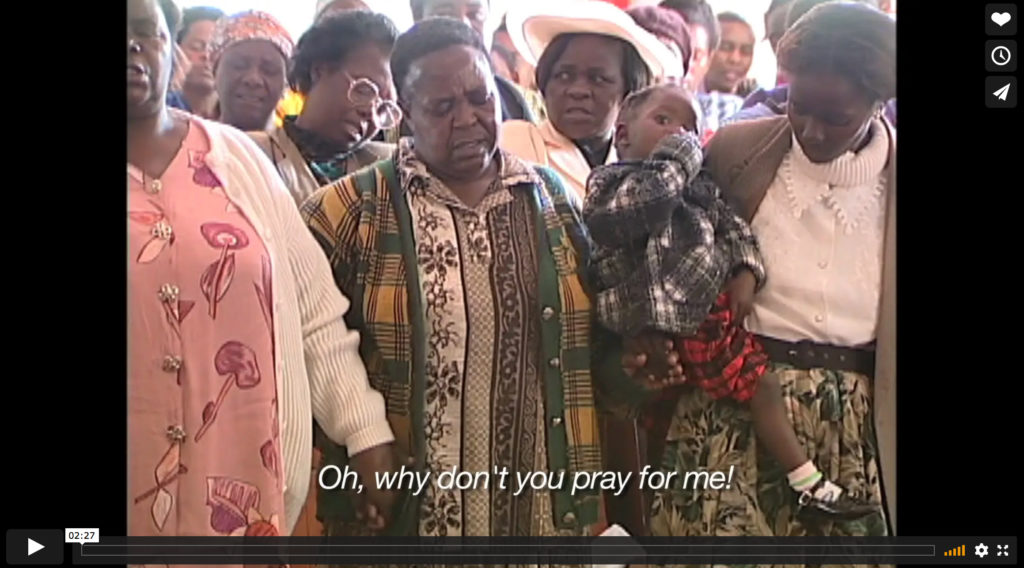
For more about the story of this film project click here.
Urbanization and Church Growth
PART ONE
To begin with, the story of Machanic’s having to leave his home village to the city on his own to find work at the age of 14, after his father dies and no one comes through to pay his school fees, is a classic Christian story. It is much like that of figures like Dwight L. Moody, for example, who, after his alcoholic father died, had to seek work in the city as a youth and then went on to become America’s great evangelist in late-19th century industrializing and urbanizing America. Negotiating the anonymity of city life, without family tightly around you in village life, both providing for you and controlling your ways, holds many challenges. Among them, anomie, or normlessness, hovers everywhere, and needs normally met by family relationships cry out to be met by others. And it is here that new communities called “church” spring forth to meet such needs, providing supportive relationships and a moral compass for the new life of the city.
For more, click here.
Important Lessons about Contextualizing Christian Faith
PART ONE: Local Music Styles & Music Practices
Since music plays an important part in Christian worship and Christian life, it is to be expected that it would play an important role in the process of contextualizing, or bringing Christian faith into, local Shona culture. As a pioneering popular gospel musician—so much so that many call him the “father” of gospel music in that nation—Machanic’s music plays an important role in that contextualizing process. Of course, singing songs in Shona rather than English was one big step, going against the colonialist prejudice spoken of by his producer at Gramma Records, Bothwell Nyamhondera, that “to do things right, you had to do them in English” . . . even if worshippers didn’t fully understand, or understand at all, what was being sung!
But, in addition to language, grounding Machanic’s songs in local rhythms and instrumentation, including drumming, brought them more powerfully into the spiritual life of Shona people, like the mhande-like rhythms Machanic enjoyed following his father’s traditional mhande music. But, the association of such music with the traditional spiritual life of the Shona people–for example, the song and dance performed by the Mhande dance ensemble at Zimbabwe’s College of Music, appealing to Tovera, the spirit of one the great founding ancestors of the Shona people, to bring rain–often led missionaries to ban any such music from church life.
For more, click here.
PART TWO: The Prominence of Spiritual Healing
On the multi-denominational stage of popular Christian music, Machanic was one of the important, though not the only, pioneers in bringing Zimbabwe-style gospel music with Shona lyrics into the limelight. But, there are other dimensions to the popularity of his music that hold some important lessons about the process of contextualizing, or rooting Christian faith authentically in local Shona culture. That can be seen in those songs of his that seemed most popular among enthusiastic Christian followers of his music, songs they would always call on him to perform in local concerts, and songs, because of their sustained popularity, he would remix again and again for new CDs. They are ones that he performs in our film to his Chitungwiza Citadel church community and to the Zimbabwe Fellowship of New England in Worcester, Massachusetts. Have you noticed what themes they often carry?
Three of Machanic’s most popular songs from early in his career, and to this day, I noticed, emphasize similar themes. One is Rudo Serwa Peter, a “Love Like Peter’s,” telling to story of Peter and John healing a crippled man they meet at the temple. Another, Moses Murenje, “Moses in the Wilderness,” tells the story of Moses, whose people were suffering from poisonous snakes. Moses lifted up a brass sculpture of a snake and when they looked at it, they were healed. Jesus cited this event and likened it to his own life’s mission to save and to heal, which Machanic includes in this song. (It bears mentioning that coming across a poisonous snake which threatens was a reality Shona people could easily recognize.) Finally, perhaps Machanic’s most popular and most remixed song, Madhimoni, or “Demons” in English, tells the story of Jesus casting out demons from the viciously possessed man, Legion, at the graveyard.
For more, click here.
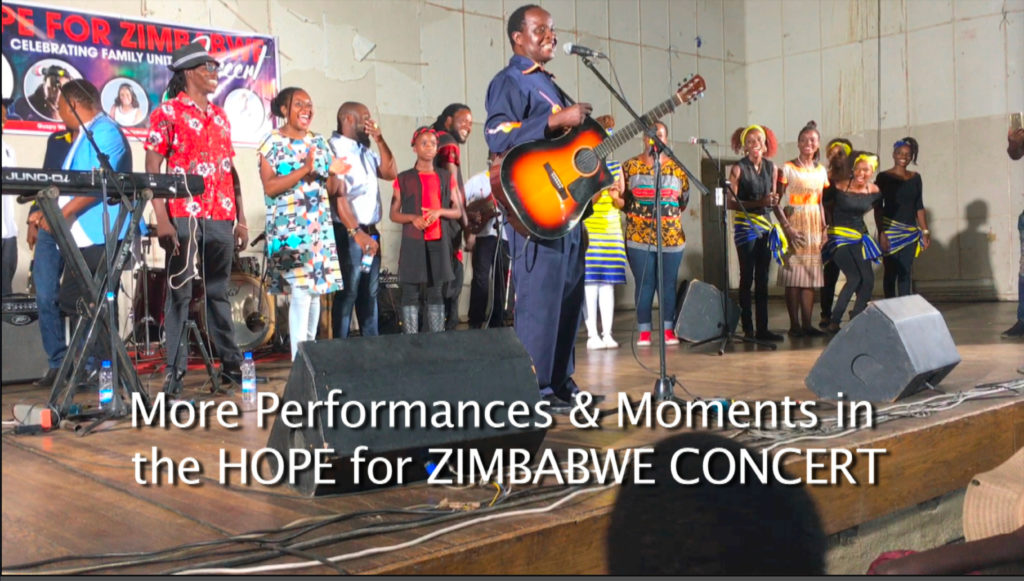
Additional & fuller performances at the Hope for Zimbabwe Concert
(To be added soon)

